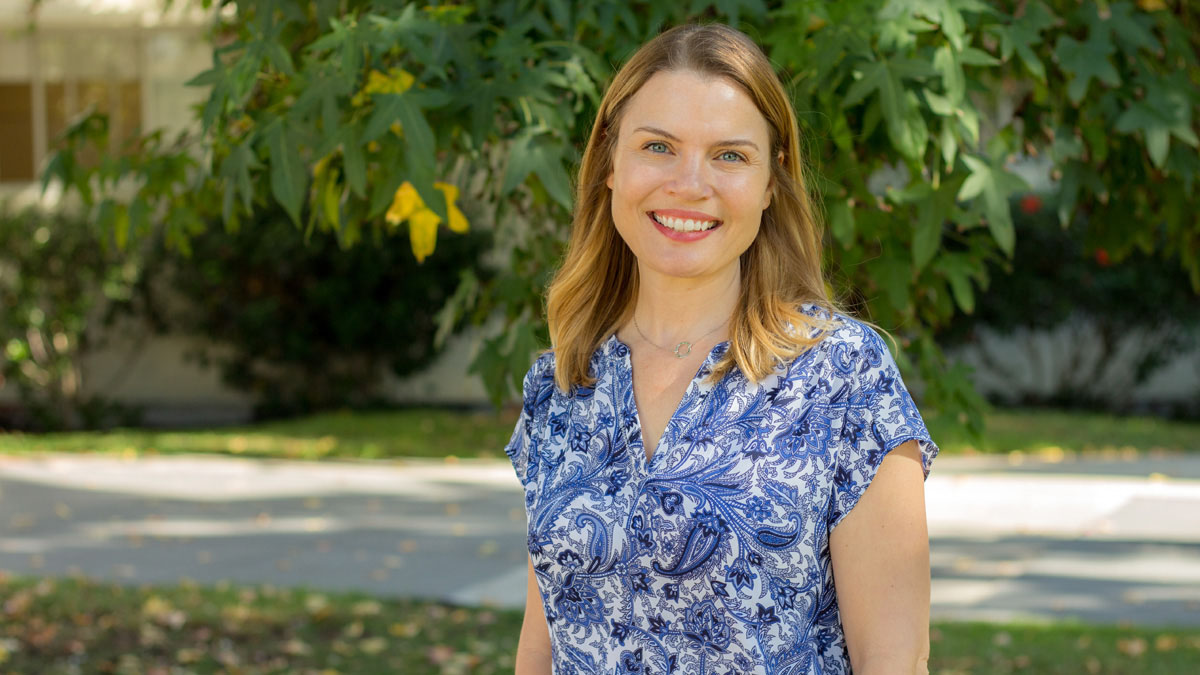Faculty Q&A: Suhrheinrich discusses the power of mentorship

Jessica Suhrheinrich has a CV that any aspiring academic would love to emulate.
The associate professor for special education at San Diego State University is a renowned researcher who works to improve services for the autism community, taking leadership roles in initiatives such as the California Autism Professional Training and Information Network (CAPTAIN) and the San Diego Leadership and Education in Neurodevelopmental Disabilities (LEND) training program.
But Suhrheinrich will be the first to tell she didn’t get here alone.
Among her many mentors who helped guide her along her path in academia was Aubyn Stahmer, now a professor in the University of California-Davis Department of Psychiatry and Behavioral Sciences.
“I had the opportunity to work with her from my very early days in autism research through my graduate studies,” Suhrheinrich said. “She became a continued collaborator and friend. That's been one really important relationship that has helped me navigate each stage or transition in my professional development.”
Stahmer’s example helped inspire Suhrheinrich as she has taken on the College of Education Faculty Mentoring Coordinator role for the 2023-24 Academic Year. She is now in her second semester in the position, which integrates and empowers new and junior faculty by providing a network of mentors, resources, and opportunities.
We recently sat down with Suhrheinrich to discuss the importance of mentorship and how she hopes to empower COE colleagues.
What does mentorship — and this position specifically — mean to you?
Mentoring has been important in my career, and so it's a key value for me — professionally and personally. I've had the benefit of having excellent mentors who walked alongside me through different areas of professional development. I have been a mentor in a variety of different roles prior to this position, most recently as a DRI fellow for the college. When that position ended, this seemed like a natural next step and a cool opportunity to get to know some of our early-career faculty better. I've really enjoyed the role. It's been fun getting to know some early-career faculty that I hadn't connected with previously. I've been really impressed by them and their accomplishments.
What’s the most important way you help empower your colleagues?
I think one of my most important roles is being an active listener, creating space for faculty to share questions and creating space for them to connect with each other and have peer support. It also allows me to identify other resources that may be needed. So it's giving space for that personal connection around professional growth in a variety of different respects.
You mentioned Aubyn Stahmer. How did having a mentor who believed in you impact you personally?
I think that Aubyn’s role as an encourager was critical, but she also showed me ways to say no, navigate difficult conversations and advocate for myself. I think it really all falls under that umbrella of believing in oneself, but with some specific skill building along the way. Some of that is going for something that feels like a challenge. Some of that is pulling back to focus on your key priorities. Those are values that I try to convey to people that I've mentored over the years, as well.
What more can be done to grow a culture of mentorship within the college?
One of the reasons I was interested in taking this role is the chance to extend the support beyond just early-career or new faculty to the college. I’d love to identify priorities and needs for faculty who are maybe already tenured but who are looking for mentorship in certain areas. That's one vein that I'd like to continue to pursue. I think that we're always continuing to grow and learn. I know I feel that way and I'd like that to be a way that this position continues to develop.
If you would like to connect with Jessica regarding individual mentorship or to share ideas for further development of the FMP, please email [email protected].
